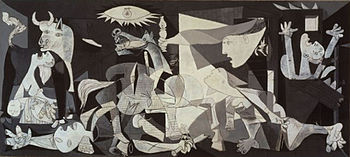 Alan Furst’s espionage novels set during the turbulent years of the 1930s encapsulate so many features that
Alan Furst’s espionage novels set during the turbulent years of the 1930s encapsulate so many features that  should be in a good thriller that I usually read them in one of two sittings. Midnight in Europe was no exception, and seemed an appropriate title to read at the time of the dreadful Paris terrorist attacks.
should be in a good thriller that I usually read them in one of two sittings. Midnight in Europe was no exception, and seemed an appropriate title to read at the time of the dreadful Paris terrorist attacks.
The book’s dedication page is a quote by Sir Edward Grey, British Foreign Secretary, on the eve of the Great War, 3 August 1914.
“The lamps are going out all over Europe. We shall not see them lit again in our lifetime.”
Europe has faced great threats in the past but let us hope we have learned a little from the traumas suffered during the twentieth century by our parents and grandparents generations.
Midnight in Europe begins in late 1937 when Cristian Ferrar, a handsome Catalan lawyer, is recruited to work for the Spanish Republic’s arms buying agency. He is a senior partner at the well respected firm of Coudert Freres, fluent in several languages he is an anti-Fascist and a good candidate to deal with the numerous problems he will face. Along with Max de Lyon, a former arms trader with a Swiss passport, Ferrar will travel across Europe to Gdansk, Berlin and Odessa dealing with gangsters, spies, and Fascist agents in various attempts to obtain arms for the doomed Republic. The Spanish Civil War was like most civil wars a dreadful conflict in which both sides committed atrocities. The disunited Republican left backed by Stalin’s Russia proved no match for Franco’s Nationalists backed by Hitler and Mussolini. The real tragedy was that Britain and France refused to sell arms to either side, which in reality meant the Republicans were always short of weapons and planes. [above right Pablo Picasso’s 1937 painting depicting the bombing of Guernica]
Ferrar will manage to meet beautiful seductive women along the way, and the reader will learn about Europe’s dire situation in the late 1930s. The book is full of great characters, exciting incidents, historical information and the accurate atmosphere of that terrifying time.
Defiance? The stationmaster would not stand for it. His face knotted with anger, his voice raised, he said, ‘Don’t you dare contradict me, Monsieur Cohen or Levy or whatever your name is. I say what goes on here, so don’t you try any of your sneaky little tricks on me! We’ve had more than enough of your kind in Poland.’
Crack. The speed of the blow was astonishing. De Lyon’s hand, as though on a coiled spring, swept backhand across the stationmaster’s face. Shocked, his mouth open with surprise, the stationmaster put his hand to his cheek.
‘How’s that for a little trick? de Lyon said.
Furst’s thrillers are unequivocal in their stance that evil must be confronted. The plots are thrilling but not overcomplicated, the characters well drawn, the locations varied, and the clarity of the writing means that the social and political commentary is easily absorbed by the reader.
‘To fight Franco, to fight them all; Hitler, and those who aspire to be Hitlers……..I don’t mean to give a speech but the subject forces you to, doesn’t it?………
From de Lyon a dry laugh. Then, ‘True. And if a time comes when the phrase to fight turns into fight back, it will by that time be too late.’
Fine review as ever, Norman. You’re right, too, that we need to learn from the past. I had the privilege of seeing Guernica when I was in Madrid last June; it’s a moving experience to see the real thing, and a reminder of how horrendous war is.